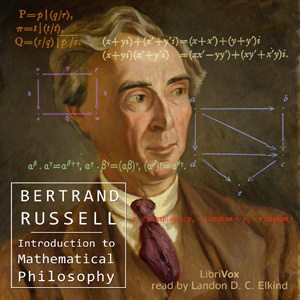Bertrand Russell - Introduction to Mathematical Philosophy
Bertrand Russell
100%
Speed
Summary
Bertrand Russell wrote 'Introduction to Mathematical Philosophy' while imprisoned for protesting Britain's involvement in World War I. Russell summarizes the significance of the momentous work of mathematicians in the late nineteenth-century. He further describes his own philosophy of mathematics, Logicism (the view that all mathematical truths are logical truths), and his earlier, influential work solving the paradoxes that plagued mathematical foundations, which crystallized after ten years of dogged effort into the co-authored (with Alfred North Whitehead), three-volume 'Principia Mathematica'. Russell emphasizes the importance of a doctrine of types, the truth of Logicism, and the clarity brought to the philosophy of mathematics by the method of logical analysis. (summary by Landon D. C. Elkind)
More from Bertrand Russell
Authorization
By logging in, you agree to the terms and conditions.


















No comments